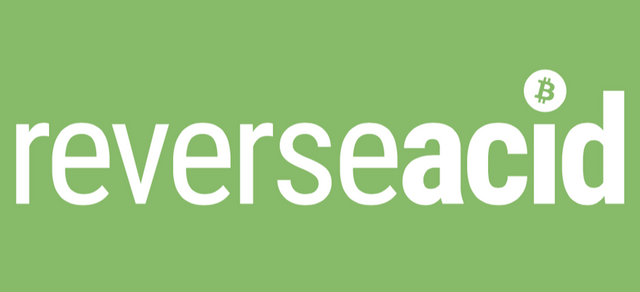Transforming Real Estate Investment on the Blockchain
Exposure to Real Estate is Important
Real estate is one of the most sought after assets for individuals and companies alike. It is typically seen as an investment for wealthy people and as it requires a considerable amount of capital to obtain. From a pure investment standpoint, real estate is the best way to safeguard your money as stocks and bonds may fall, but people need a place to live. Rare incidents occur, like the 2008 sub-prime housing crisis, where house prices fall by nearly 50%, but the housing market doesn’t see ‘corrections’ the way stock markets do. This is because of a strong psychological phenomena; real estate is tangible.
Source: Medium
Despite any behavioral anomalies, real estate is one of the safest investment products. Risks for stocks come from the performance of the company that issued them. We as individuals have no control over the operations of the company. For this reason, stocks are nothing but educated bets on the ability of a company to perform. Most asset classes that don’t provide tangible value can be viewed this way. The beauty of real estate lies in the losses. Even if the value of your house falls by 50%, you still have a home to live in. When the price of a stock falls 50%, you just lose 50% of your money in that stock. The tangibility of real estate makes it an asset worth owning. The behavioral properties that govern it make it extremely low volatility and high intrinsic value asset.
As previously mentioned, real estate is seen as a wealthy person’s investment. The value of global real estate sits at a whopping $217 trillion. The median price of a home right now is $223,900 as per Zillow. Most Americans have less than $10,000 worth of savings. The majority that does own homes live nearly pay check to pay check to pay off their mortgage. Real estate investment is picking up, with a lot of salaried class people buying houses with a mortgage and renting it out. The rental income pays for the monthly mortgage payments plus a small premium for the owner. But of course, you may not want to burden yourself with debt that may prove tough to pay off. So is it currently possible to get exposure to real estate markets without a loan or huge lump sum investment? The simple answer is yes, but just like everything in life, it’s complicated.
Real Estate Investment Trusts (REIT)
These investment vehicles are not too old, but not too new either. In brief, a REIT is a collective investment scheme (like a mutual fund or ETF) that gathers money from small investors into a large fund and buys commercial property. The rental income from the properties is paid out as a dividend to the investors and the shares of the REIT can be traded in secondary markets. They were built for two reasons; to help real estate companies’ finance their properties by pooling retail money and to give retail investors some exposure to the real estate market. As with all things, there are indeed drawbacks here as well. REIT’s are a way to get exposure to commercial real estate but will offer none to retail housing. Individual houses have much better per sq. foot capital appreciation than commercial real estate. The only way to currently get indirect exposure to retail housing is through ‘mortgage backed securities’. For those of you know who don’t know what this is, mortgage backed securities are the instrument that broke the global economy in 2008. This kind of exposure is basically backing the stability of retail housing debt rather than equity or direct ownership. This is where the $100 question arises: is it possible to invest in a fund that invests in retail housing? The answer lies is tokenizing real estate.
Distributed Ledger and Tokenization of Real Estate
To explain how tokenization of a real world asset such as real estate works, let’s look at the general process of doing so.
- The owner of a piece of property lists their property for sale with a third party or directly on a smart contract platform such as Ethereum.
- Once listed, people can start committing amounts toward it. There would be a minimum contribution depending on the platform and property.
- The amount raised for the property would be listed as a separate entity and a smart contract would be initiated between the entity and seller. Ownership and necessary documents would be exchanged for the sales proceeds over the smart contract.
- When the smart contract executes, it will create a pre-decided number of tokens (of equal value) to divide the property. For example, if the property tokenized is worth $500,000, and the number of tokens is set to 50,000 in the contract, once the contract is executed, it will create 50,000 tokens of $10 each. The tokens will move up and down as per the price of the property. They can be transferred to other people and even traded on secondary exchanges if the facility is made available.
- The property can be rented out at the same time and rent collected is paid as a dividend each month to the token holders.
Blocksquare, a leading real estate tokenization platform, uses a similar process with a little more legal clarity. The entity to which tokens are initially issued is a Special Purpose Vehicle (SPV) created just for the disbursement of tokens. The number of tokens issued is usually fixed at 100,000 tokens per issue.
Source: Blocksquare
Similar to how Stripe or PayPal provide tools for e-commerce sites to securely and promptly process online payments, Blocksquare offers real estate businesses the world's best real estate tokenization system with all required tools and modules for creation, issuance, sale, distribution, management, tracking and trade of tokenized properties.
Read the Blocksquare Pilot Report here that tries to portray the real-life use-case of their project.
Source: Blocksquare
This process gives the little guy, with not much wealth and financial prosperity, to gain real estate exposure. It’s a great way for middle class/middle income investors to generate cash flow while not splurging large amounts on direct real estate or mortgages. The opportunities are much more versatile than REIT’s. Tokenized real estate can include multiple properties. For example, a tokenized real estate fund that buys 20 houses and rents all of them out for dividend payment can provide geographical diversification that isn’t affordable to regular people. The fund can also be a mixture of commercial and retail real estate to create both cash flow and geographical diversification. The greatest added benefit is that all of this is done via code and distributed ledgers. Governance will be pristine if the standards are correctly set, the data will be immutable, and there is no need to trust a lawyer or third party broker unless you/the fund choose to.
So we finally have a way for both institutions and individuals to invest in large blocks of individual houses through an equity investment rather than buying debt through mortgage-backed securities.
To make evaluating this for you even simpler, let’s explicitly list the advantages and disadvantages.
Advantages
• Ease of funding for people looking to sell their houses or investment managers looking to raise funding for a pooled real estate investment.
• Exposure to real estate investing through equity without splurging large amounts of capital.
• Creates a liquid market for real estate assets as these tokens can be traded in secondary markets as well as directly transferred to another beneficiary.
• Distributed ledger creates a system with high-grade governance standards so individuals have an implementation that is working for them instead of against them.
• Executed through smart contracts and code instead of lawyers and brokers who mostly have their own self-interest at heart.
• Will democratize the real estate market by making it an asset for everyone rather than a wealthy person’s asset.
Disadvantages
• Legality in current courts would be unclear as the entire blockchain and DLT space are currently under a lot of uncertainty. Until there is clear regulation or legislation regarding this, the risk is incredibly high as we don’t know if these platforms that issue real estate backed tokens will be allowed to operate.
• Smart contracts are pure code and have inefficient UI. Without a background in coding or blockchain engineering, it is very difficult for an individual to asses if the system is indeed trustworthy. Especially after the recent fiasco with Oyster Protocol, it is vital for people to be able to understand the code in smart contracts. With this said, it may actually be easier to read the 100’s of pages of legal work lawyers draw up as people can at the very least understand what they’re reading.
• Tokens will most likely be labeled as securities as they are pieces of ownership of property. Moreover, with the mechanism, Blocksquare uses where the SPV holds the property and the tokens are ownership in the SPV, the tokens are 100% classified as security tokens based on the various notices issued by the SEC and projects they have closed down so far.
Conclusion
Tokenizing real estate will have major implications on the way it is seen as an investable asset. Introducing this will be fairly difficult as it involves changing the way people view it, but it will create a plethora of opportunities that could not be fathomed 10 or 20 years ago. There is a huge shroud of uncertainty over how this will be recognized by the law but eventually distributed ledger will become the base of most industries and systems. From a personal standpoint, healthcare, real estate, governance, and banking practices and infrastructure will be changed dramatically over the next 10 years. This entire change can be owed to distributed ledgers and improved transparency. A significant power and wealth shift is currently happening. Only those who open their mind enough to see the endless possibilities will be able to grasp and hold onto these opportunities.
- AB
ReverseAcid Monthly Recap
- ReverseAcid Monthly Recap - November 2018 (Vol 1)
- ReverseAcid Monthly Recap - December 2018 (Vol 2)
- ReverseAcid Monthly Recap - January 2019 (Vol 3)
Crypto Analysis Series
- Part 1 - Basic Attention Token and How It's Revolutionizing the Internet
- Part 2 - Golem Network Token as a Potential Giant Killer
- Part 3 - Augur and the Future of Decentralized Predictions Markets
- Part 4 - Dogecoin - Such Meme, Much Value
- Part 5 - Zilliqa
- Part 6 - IOTA
Previous posts:
- Determining the Role of Clearing and Settlement Houses
- Crypto Analysis Series - Part 6: IOTA
- The Stablecoin Ecosystem and It’s Importance to Digital Payments
- Looking Back at the Ethereum Hard Fork Timeline - A Precursor to Constantinople
- Gold Making A Rebound
- Blockchain Patents Race
- XRP-USD Chart Breakdown: Daily Timeframe
- Governmental Incentives for Implementing Distributed Databases
- Current Scenario of the Global Stock Market: A Detailed View Into Major World Indices
- Giving in to Your Fear: Does the Current Market Warrant this Magnitude of FUD?
- DLT, Blockchain, and Cryptocurrencies: What it all Means for FinTech and More
About Reverse Acid

Be a part of our Discord community to engage in related topic conversation.

Follow our Instagram and Twitter page for timely market updates

